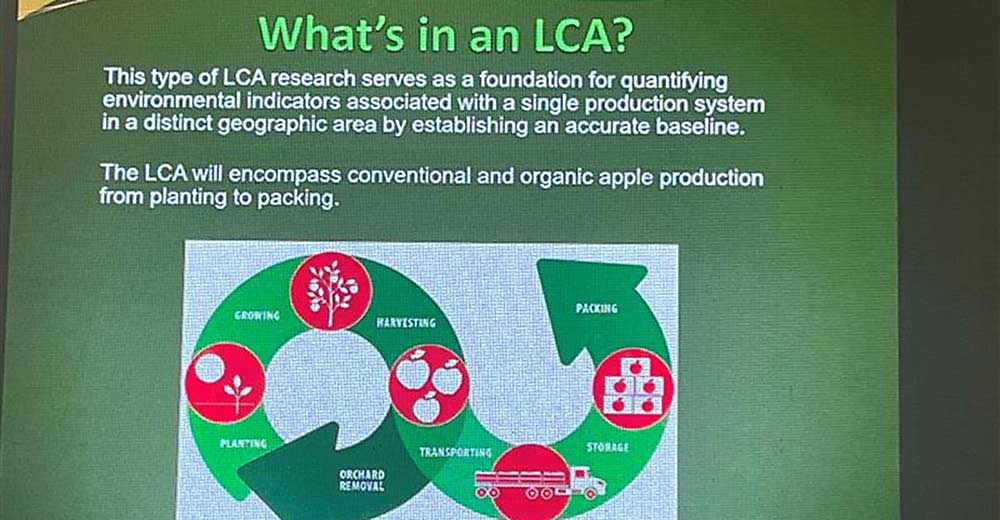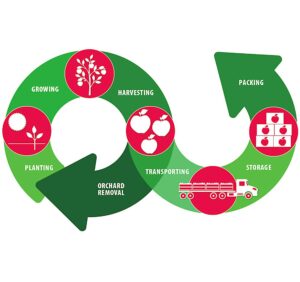
The Washington apple industry will invest $500,000 in understanding its sustainability, but it needs grower participation to make the effort a success.
“What this is really doing is rallying us as an apple industry, together (to build) a unified approach we can all use,” said Jon Cox of Double Diamond Fruit, in a session dedicated to introducing the life cycle assessment effort.
The assessment will create a tool growers can use to measure relevant sustainability metrics for their orchards, Cox said. That’s something retailers are starting to ask for, but the industry still has a chance to get in front of this agricultural shift and define the standards for itself.
“I feel that we are really close to being a sustainable commodity,” he said. “I can see a future where — if we rally together as the apple industry — maybe consumers will preferentially eat an apple over a different commodity, because they know that apples are produced in a sustainable manner.”
To get to that vision requires industry input. Washington State University researchers and LCA experts have worked with industry groups to design a survey for growers that will estimate environmental impacts including fuel use, irrigation practices, orchard infrastructure and carbon sequestration.
“We recognize that this is sensitive data,” said Dan Langager of the Northwest Horticultural Council, which has spearheaded the project. He assured growers that their data will be confidential and encouraged broad participation to ensure the resulting model is as accurate as possible.
The survey will be distributed in January.
Another afternoon session focused on horticultural research, including crop load management and its role in fruit quality, biomarker development for maturity indices, plant growth regulator use and apple heat stress management.
The conference and expo will continue Wednesday with sessions on workforce management, organics, business practices in challenging times and an introduction to WSU’s newest apple, WA 64.
In the pear session, a panel of five growers shared their experiences replanting pears, usually replacing older, low-density blocks with high-density orchard systems.
Managing water is one of the most crucial lessons they have learned, they all said.
“My biggest mistake was water,” said Blaine Smith, a Wenatchee River Valley grower. “We ended up with way too much water.”
Other advice included to make sure trellis wires and anchors are tight and secure; fumigate before replanting, even leaving ground fallow with Sudan grass for a year; and making sure your crews can keep up with the new schedule of tasks, which requires a lot more labor to train young trees.
“Don’t over commit,” said Tim Pitz of Mount Adams Fruit.
Other session topics included integrated pest management for pear psylla and Washington State University enterprise budgeting for Bartletts and Anjous.
—by Kate Prengaman and Ross Courtney







Leave A Comment